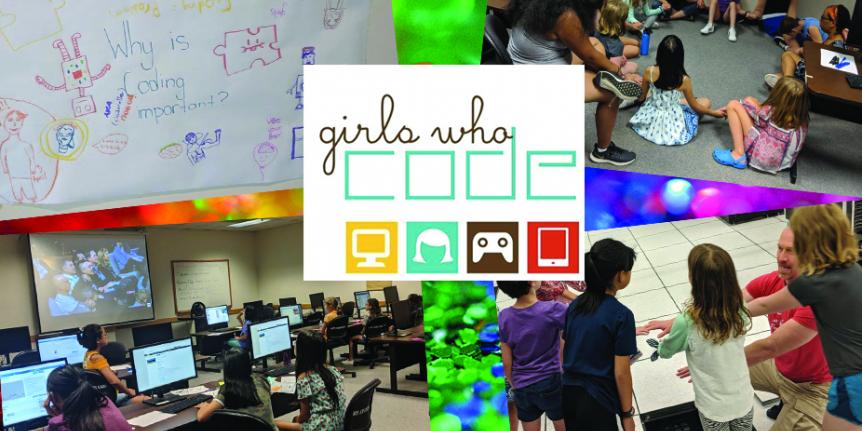During her run for U.S. Congress in 2010, Reshma Saujani noticed the gender gap that existed in computing classes along her campaign trail. Although not a computer programmer herself, she decided to try to do something to close that gap and in 2012 started Girls Who Code. The gender disparity in technology is stark. According to the National Center for Women & Information Technology (NCWIT), in 2016 only 19 percent of computer and information sciences bachelor’s degree recipients were female. While at the same time, 57 percent of bachelor’s degree recipients were female.
In order to close the gender gap in technology and change the image of what a programmer looks like, Girls Who Code offers summer immersion programs and camps for girls in elementary school through high school. This past summer, a couple OIT staff members hosted the first Girls Who Code camps on the CU Boulder campus. OIT’s Director of Enterprise Services, Jill Ibeck, had helped facilitate some Girls Who Code clubs when she was with University of Colorado System Office’s University Information Systems (UIS).
“Everyone was excited about the idea of starting clubs at CU Boulder and people from all corners of our campus pitched in to get the ball rolling,” said Ibeck.
To start the clubs at CU Boulder, Ibeck teamed up with OIT’s Associate Director of Enterprise Services, Kerry Havens, and Enterprise Data Services Program Manager and Product Owner, Molly Doyle. Together they submitted a grant proposal to the Office of Diversity, Equity and Inclusion. They also received support from NCWIT’s CEO and co-founder, Lucy Sanders, and the School of Engineering.
The first series of clubs were held this past July with about 25 participants ranging from third grade to high school seniors. Third through fifth graders were grouped together for four half-day sessions during which they toured OIT’s data center, experimented with the code editor scratch, heard from women and men with STEM-based careers, in addition to working through the Girls Who Code curriculum. One of the club facilitators was a CU Boulder student who shared her experiences working on NASA projects while completing her degree.
“We made a concerted effort to bring in female students from CU Boulder who could more closely relate to the camp’s girls in addition to faculty and other professionals,” said Havens. “Hearing about the amazing things these women were doing in STEM fields really opened these girls’ eyes to the opportunities.”
In addition to activities that the younger girls participated in, the girls in the 6th to 12th grade camp were tasked with creating a coding project plan and build the app they proposed. The final projects included a gymnastics game and an ocean cleanup game.
Havens and Ibeck hope that this is just the beginning of a movement that could spread across CU’s four campuses and begin producing a pipeline of girls who choose to pursue STEM fields of study.
“Right now we want to focus on supporting the clubs in their current form, and over time, growing the clubs to be larger, increase the recruitment of underserved individuals, and to continue expansion of the network of clubs across the four campus CU System” said Ibeck. “I hope that someday, maybe one of these girls will be my boss.”
For more information on the club offerings and possibilities for getting involved, please visit the club’s page.

